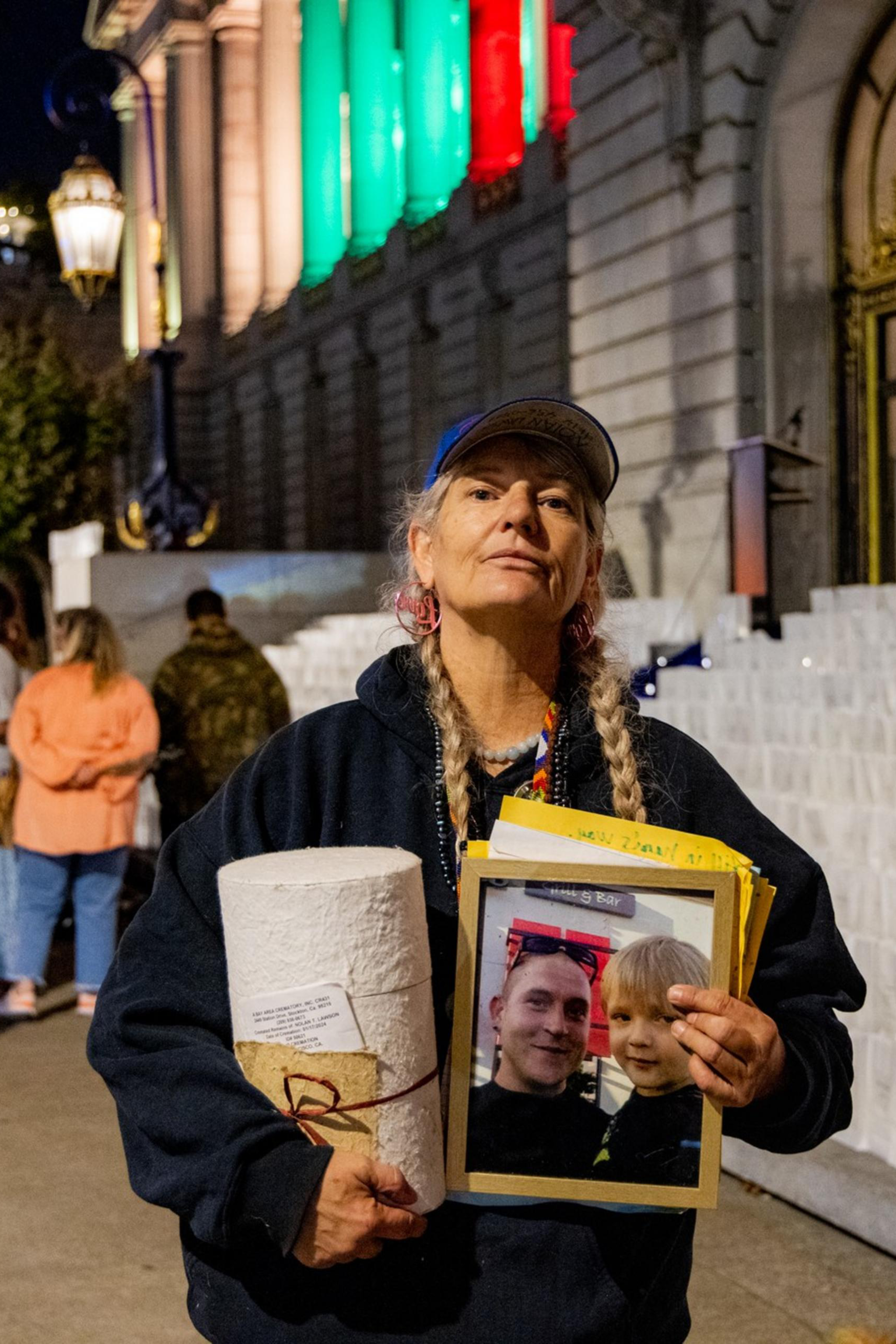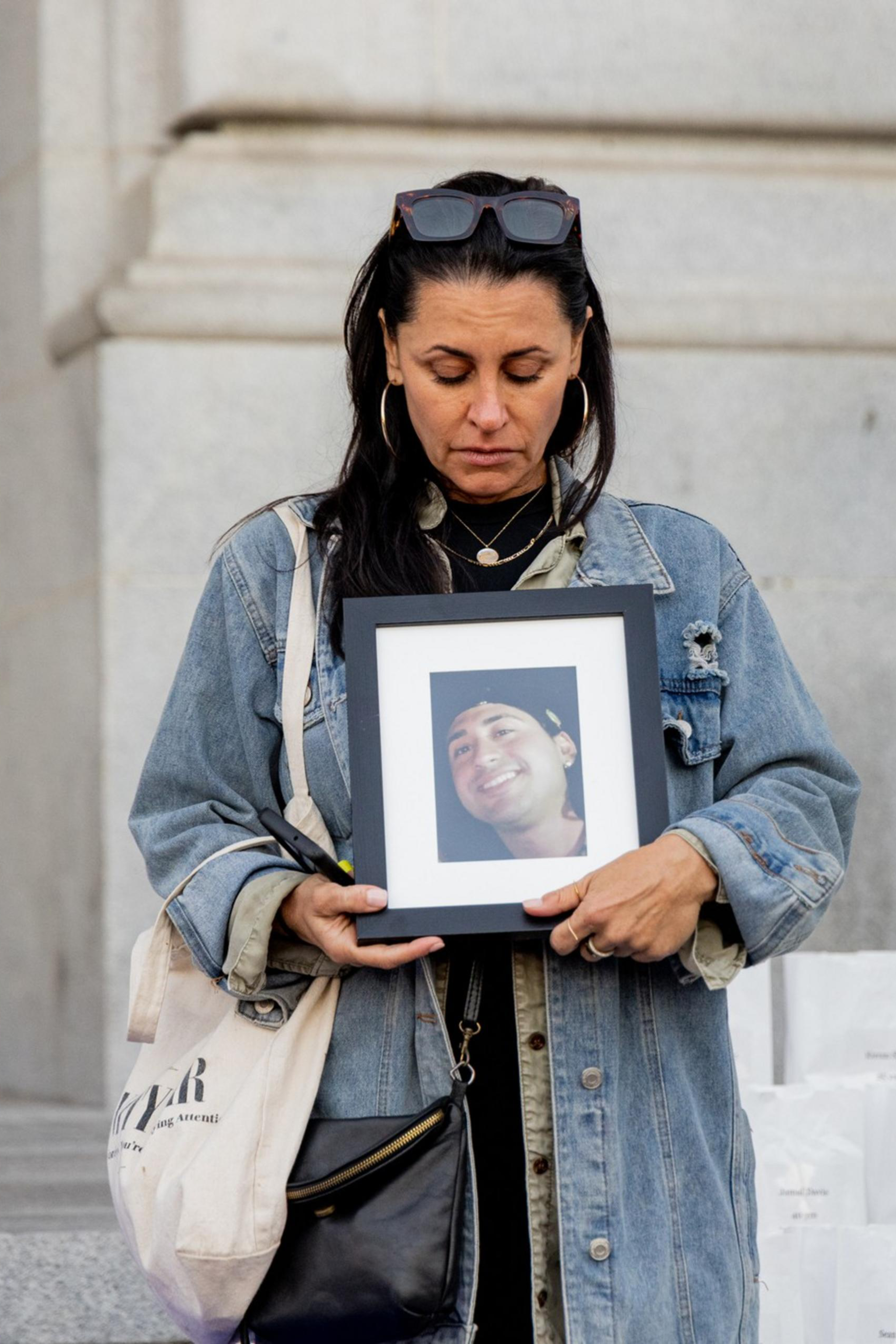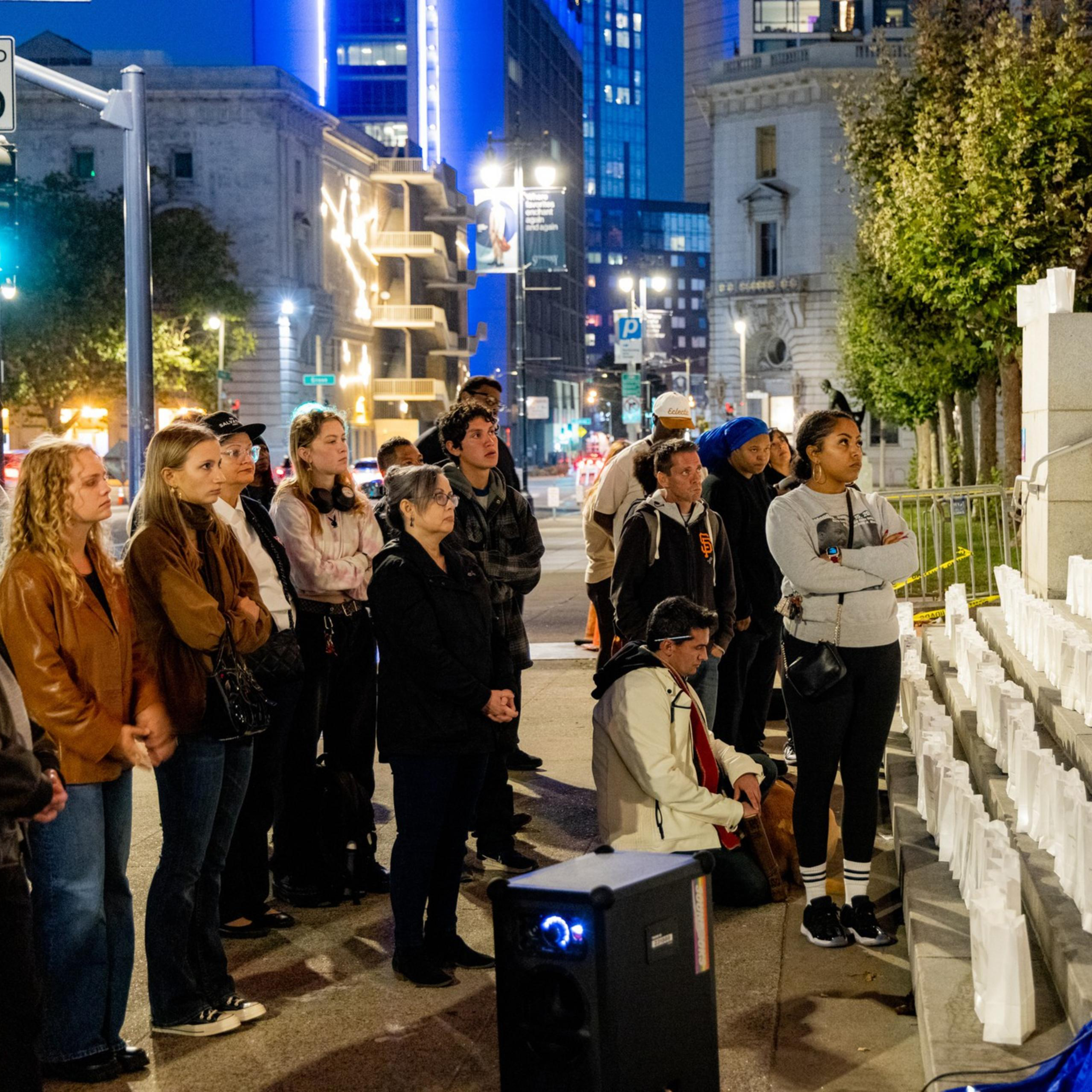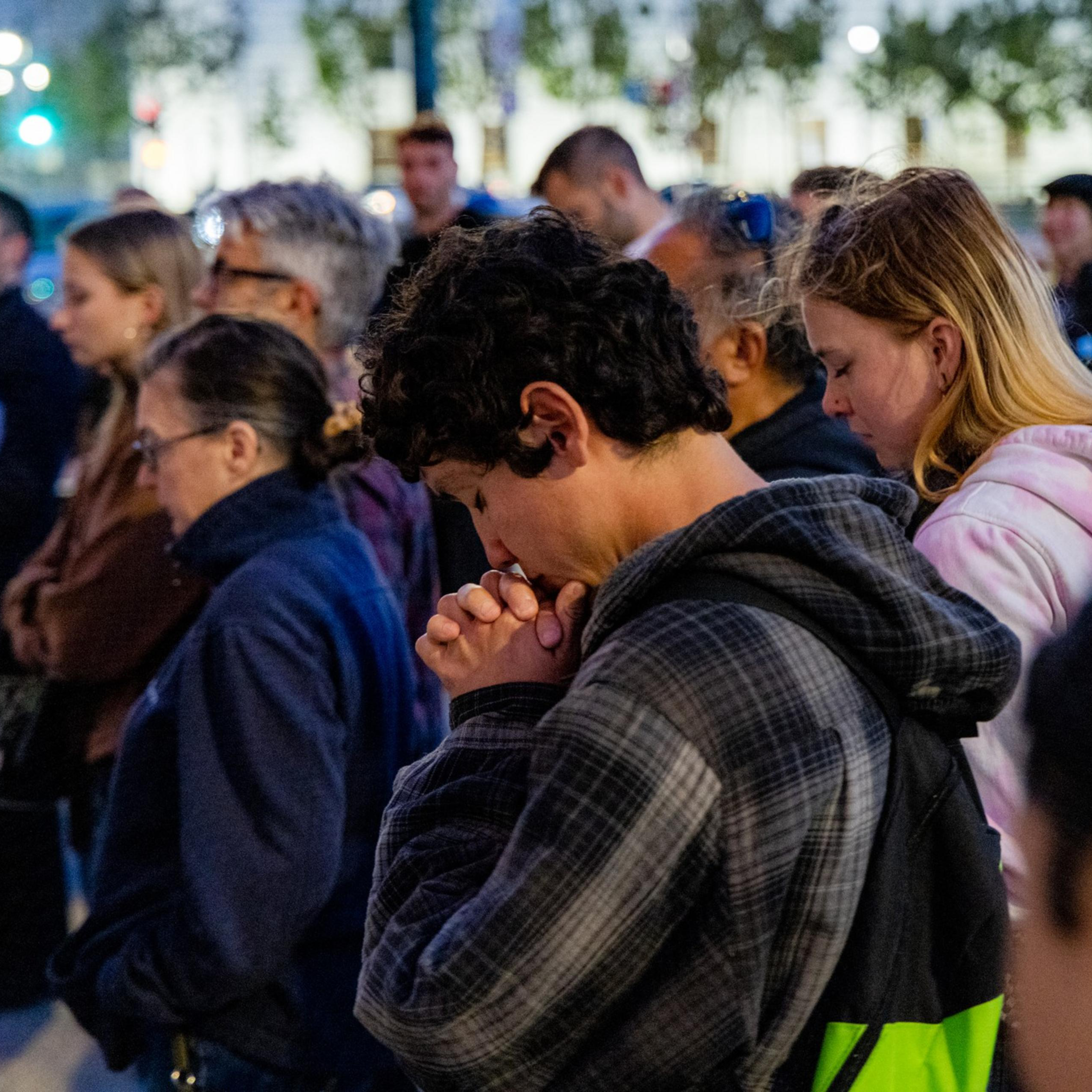Nolan Lawson cultivated his addiction in Mendocino County, where the rate of opioid overdoses is triple the statewide average.
But he became a San Francisco statistic on New Year’s Day, when he died on the steps of the Civic Center library, marking the city’s first overdose death of 2024. He was 35.
Nearly nine months later, across the plaza on the steps of City Hall, his mother, Whitney Eads, 58, joined other parents to mourn at a vigil for lives cut short by the drug crisis.
The Saturday-night memorial was set against a backdrop of more than 1,100 votive candles, each representing an overdose casualty since the start of last year, the deadliest on record for overdoses in San Francisco. So far in 2024, the fatalities, largely driven by fentanyl, are on track to nearly match last year’s numbers.






Eads shared her story at the somber sunset gathering to call attention to systemic failures that she said let drug-dependent people fall through the cracks.
“My son begged to go to recovery and treatment while he was incarcerated,” she said, “and he did not receive that.”
On the streets, she said the lack of open-door access to treatment leaves people like her son stuck in the cycles of crime and addiction that so often lead to death.
“We must realize that addiction is a symptom of an underlying problem with someone,” Eads said, “and we need to have better supports for those services.”
Vicki Dowell said the fentanyl crisis even poses a risk for casual users like her son, Jacob Dowell, who died on Dec. 17, 2022, after using cocaine offered by a friend. He was just 26.
“He was just outgoing, loving, he was engaged to be married, and he loved animals,” his mother recounted. “He would help anyone that needed help. And he was my only son, my only child.”






For many attendees, the vigil was a chance to dispel the shame that keeps families silent about addiction.
Jacqui Berlinn, 58, said she kept her son’s struggles a closely held secret until a photo of him passed out on a BART train started making the rounds online.
“People were saying all these awful things about my son,” she said. “And I realized it was my son.”
Berlinn responded to the mockery by claiming her child, commenting in the BART rants-and-raves Facebook group that the man in the photo was her son, Corey Sylvester.
“As soon as I did that, the narrative changed,” she said. “Like, people started saying, ‘Oh, my gosh, I’m so sorry. If we see him again, what can we tell him for you?’ It humanized him. And I realized how important it is for people to understand that even though they see someone who’s an addict, a drug addict on the streets, that it doesn’t mean they’re not worthy or loved, that they don’t have a family. They’re not throwaway people.”






Berlinn founded Mothers Against Drug Addiction and Deaths — the group behind the vigil — to advocate for other families with loved ones in the throes of addiction.
She said her son is doing much better. He’s on methadone and under a roof. It’s the culmination of a hard-fought journey.
“It was unbelievably difficult to get him help and find resources,” Berlinn said.
That was a familiar refrain at the vigil, where one speaker after another talked about how difficult it was to find services for loved ones.
Gina McDonald, whose daughter spent a few years on the streets of the Tenderloin, said city leaders have leaned too much toward harm reduction instead of recovery.
“Drugs are easy to get here; paraphernalia’s easy to get here,” McDonald said.
While she commended the Public Health Department for distributing Narcan to reverse overdose deaths, she said that’s just a short-term fix.








McDonald said she pulled her daughter off the street and brought her back to the East Bay for treatment, and she’s approaching nearly a few years sober.
As co-founder of Mothers Against Drug Addiction and Deaths, McDonald advocates for more treatment beds and services.
For Lisa Richofsky, the battle is far from over. Her daughter remains on the streets, where she has lived for a few years.
“I’ve tried to get her home many times,” she said. “I’ve walked the streets in San Francisco many times just to look for her. It’s been a long road, and I don’t think they get enough help out here.”
If death doesn’t claim her daughter, she fears, prison might.
That’s where addiction brought 55-year-old Tammy Morgan-Foglia’s son, who’s 27 and serving an 18-month stint for stealing to fund his drug use. Had the city made services more readily available, her son might be free, she said.
“Literally, with my son here, they did nothing,” she said. “They didn’t care.”

